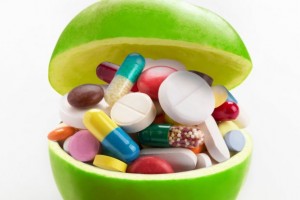After Tuesday`s lecture I got really intriged about cows created to much methane that is contributing to the Greenhouse effect and the global warming. I would never thought that an animal specially cows would be in a certain way harmful for the environment. But how much is that contribution? Let`s take a look.
Agriculture is responsable for an estimated 14 percent of the world`s greenhouse gases. I significant portion of these emissions come from methane, which contributes to the global warming. The methane is 23 times more powerful than carbon dioxide. The world`s 1.5 billion cows and billions of other grazing animals emit dozens of polluting gases including methane. Cows emit a massive amount of methane through belching, with a lesser amount through faltulence. Some experts say 100 liters to 200 liters a day ( 26-53 gallons) is the average dairy cow expels methane. A herb of cows produces more greenhouse gas in a year than a family car produces to dive 3,000 miles. Dr. Andy Thorpe of Porthsmouth University said that 200 cows expel an annual amount of methane equivalent to the carbon dioxide emissions of a car burning 21,400 litres of petrol. Between 55 percent and 70 percent of methan produced from man-made sources, mostly farming of animals such as cows,sheep and goats, which have an additional stomach and produce large amounts of methane as they digest food.
So, how is possible for a cow to expel that amount of methane? Cows, goats, sheep and several other animals belong to a class of animals called ruminants. The class of animals have 4 stomachs and digest food in their stomachs instead of in their intestines, as humans do. Ruminants eat food, regirgitate it as cu and eat it againg. The stomachs are filled with bacteria that aid in digestion, but also produc methane. What we can do to reduce the amount of methane expel by ruminants? A thre-year study, begun in April 2007 by Welsh scientists, is examining if adding garlic to the cow feed can reduce their methane production. The suty is still in process, but early results indicate that garlic cuts cows flatulence in half by attacking methane-producing microbes living in cows`stomachs. By changing the feeding of the cows, researchers are also looking to see if the addition of garlic affects the quality of the meat or milk produced.
With milliosn of ruminants in Britain, including 10 millions cows, a strong push is underway to curb methane emissions there. Cows contribute 3 percent Britain`s overall greenhouse gas emissions and 25 to 30 percent is methane. In New Zealand, where cattle and sheep farming are major industries, 34 percent of greanhouse gases come from livestock.
What if gobla warming is creating that amount of methane production in ruminants? The experimental study cannot rule out the possiblity of reverse causation. A third variable cannot be ruled out, either. BY changing the diet we can find a link whethever if the grass is what is causing the larg amount of production of methane in ruminants. Further questions: what would happen to the meat economy of there is a significant change in the quality of milk and meat by adding garlic to cows`diet? If we kill all the cows, how much increase of fish and cereal demand would be? Without the cows, could be reverse the greenhouse effect?
http://animals.howstuffworks.com/mammals/methane-cow.htm
http://www.dailymail.co.uk/sciencetech/article-1079354/Herd-200-cows-produces-greenhouse-gas-family-car-driven-3-000-miles.html


